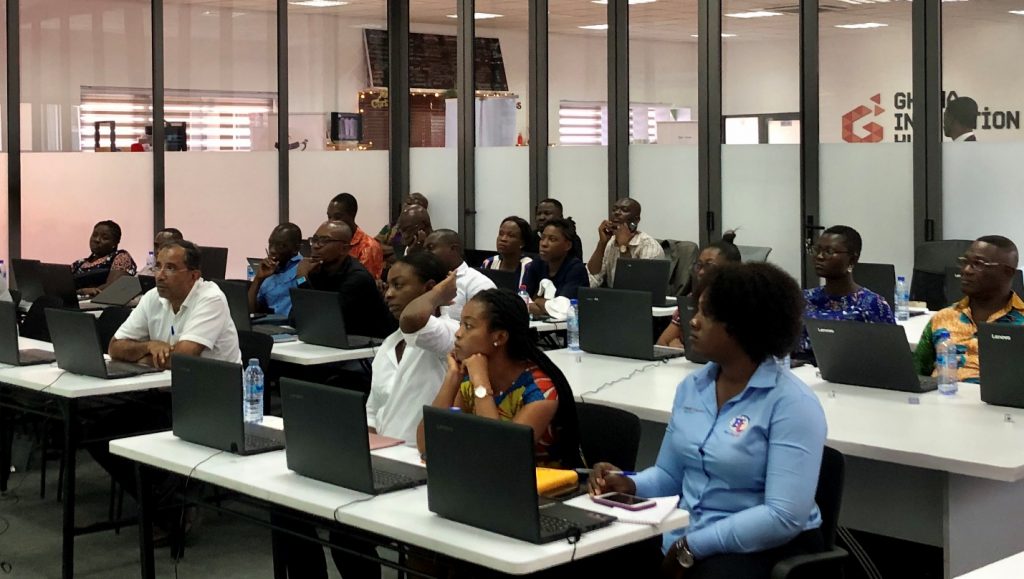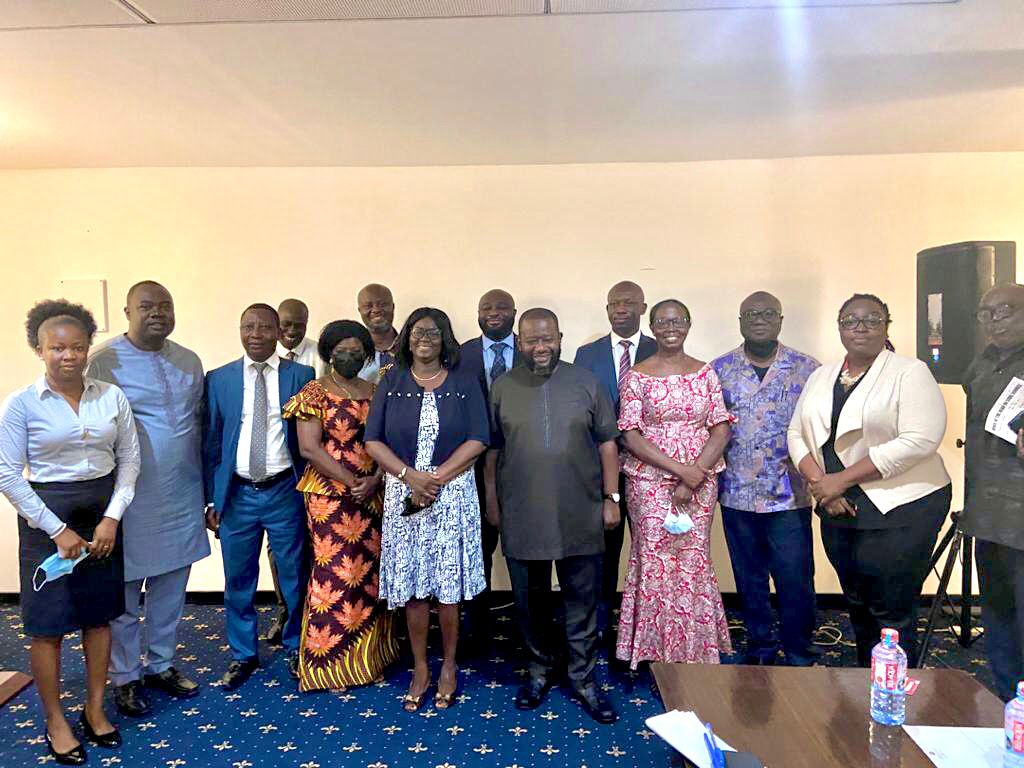In our bid to improve transparency, and efficiency as well as to reduce the cost of the public procurement process, Ghana is implementing an electronic Government Procurement System, known as the Ghana Electronic Procurement System (GHANEPS). The system was developed over two years and was launched on 30th April 2019 by Vice President Dr Mohammadu Bawumia. It then went live with a pilot phase for six (6) months. The roll-out phase was initiated immediately afterwards in November 2019 to be completed by the end of October 2023.
The roll-out will ensure that all Public Entities (Ministries, Departments and Agencies, Metropolitan, Municipal and District Assemblies, Public Tertiary Institutions, Public Hospitals, etc.), which are about 660 in number are onboarded to the system in a phased approach.

Roll-Out Approach
Notwithstanding a few challenges and teething problems, which are to be expected of a project of this magnitude, and with the outbreak of the Corona Virus in 2020, the Roll-Out of GHANEPS is going on well. The statistics continue to show an increase in the level of adoption of the system by Procurement Entities. The Roll-Out consists of three stages and usually takes about 3 months to onboard an entity, one month for each stage. In stage one, which is called the On-Boarding stage, stakeholder engagement is conducted with the management of the selected entities. They are then officially invited to the second stage, which is Training. At this stage, all selected Entities are trained at a central location. The Management of these Entities together with all Procurement Officers as well as other relevant officers are taken through hands-on training. Separate and dedicated training is also provided for Suppliers, Contractors, and Consultants on the use of the system so they can submit tenders or proposals through the system. After the completion of the training, the Entities are set up on GHANEPS and at this point, they join the live platform. This triggers the third and last stage which is the Post-Go-Live Support (PGLS) stage.

STATISTICS
Since November 2019, PPA has held stakeholder engagements with a total of 359 Entities, trained 318 Entities and has rolled 308 Entities onto the live platform. In the process, 1,999 Procurement Officers, 1,963 Management and other essential Staff as well as 2,234 staff of Suppliers, Contractors and Consultants have been trained. In the live environment, 3,606 users have been created for the entities that are enrolled. In addition, there are currently 22,179 Suppliers, Contractors, and Consultants on GHANEPS.
ACTIVITIES IN GHANEPS
The level of activities in GHANEPS has been increasing gradually as Entities get accustomed to the use of the system. The expectation is for all public entities to conduct their procurements through the system by the end of 2023.
The procurement process starts with planning. Entities are therefore required to draft an annual procurement plan. The plan must be approved by the Entity Tender Committee by the end of November for the subsequent year and following that, the quarterly updates of these plans. This plan must also be uploaded on GHANEPS. Now, 235 Entities have uploaded their 2022 procurement plans on GHANEPS.
The next stage after planning is to conduct the tender with the indicated procurement method. After the preparation of the tender, an invitation/advertisement will be published on the system. Over 784 tenders have been prepared through the system so far (See Table 1). Open Tenders (National Competitive Tendering and International Competitive Tendering) advertisements are published for the public, while invitations for Request for Quotations and Restrictive Tenders are only sent to the service providers selected by the Entity to partake in the tender.
After publication, Service Providers can respond to the tender, then tender opening, which is followed by evaluation, before a contract is awarded to the successful tenderer. Now, 58 contracts have been awarded in GHANEPS.
The Authority has put in place plans to build the capacity of the media and Civil Society Organizations to provide them with a better understanding of public procurement and our implementation strategy of the system to enable them to make an informed commentary in this field.
Table 1: Procurement Methods Used on GHANEPS
| Method | Number of Tender |
| National Competitive Tendering | 130 |
| Request for Quotation (RFQ) | 652 |
| Single Source | 2 |
| Total | 784 |
Source: GHANEPS, 23/02/2022
STEERING COMMITTEE
The Public Procurement Authority (PPA) has inaugurated and sworn in a 17-member Steering Committee to oversee the successful implementation of the Ghana Electronic Procurement System (GHANEPS).

The high powered steering committee has members cutting across multi-sectoral, professional and Civil Society Organizations. The members include Mr Augustine Blay, Secretary to the Vice-President, Frank Mante, Ag. CEO of PPA, Eric Victor Appiah-PPA, Ruth Ferkah representing the Ministry of Communication, Rebecca Okai Hammond-representing the E-Transform, Golda G. Asante from the Office of the Head of Local Government Service, Fred Charles Forson representing the Office of the Head of the Civil Service, Raynold Quarshie from the Ministry of Justice and Attorney General, Alexander Koomson representing the Ghana Audit Service.
The rest are Marian Deladam of the Internal Audit Agency, Frank Ademan representing SIGA, Kwame Jantuah of the AGI, Beauty Emefa Narteh Narteh of the GACC, Stella Addo of CIPS, Araba Kudiabor representing the Ghana Health Service, a representative from Ministry of Finance and Ghana Institute of Engineers.
The mandate of the Steering Committee includes the facilitation and providing of inputs to the formulation of policies and procedures required for the implementation to enhance the rate of adoption. They would also monitor and supervise the implementation progress regularly and provide appropriate guidance to ensure the roll–out of GHANEPS to all Public Procurement Entities.
CONCLUSION
From the above, it is evident that a great deal of work has been done by the PPA to ensure that the system is not only implemented but used by public entities to ensure the utmost realization of the policy objective behind the implementation of this system.
Written by Kwame Prempeh – Deputy CEO & Thomas Bondzi – Deputy Director MIS


